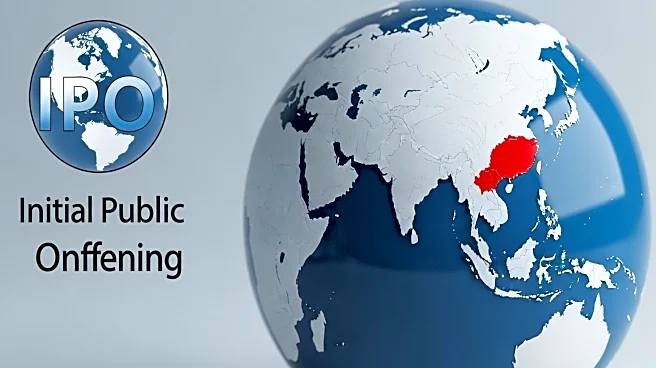What's Happening?
The initial public offering (IPO) market is experiencing significant growth in the United States and Asia, while Europe lags behind. According to data from FactSet, North America has raised $17.7 billion across 153 deals this year, compared to Europe's $5.5 billion from 57 listings. This trend is highlighted by companies like Sweden's Klarna opting for New York over European exchanges for their IPOs. The disparity is attributed to the lengthy and unpredictable process of going public in Europe, which can be affected by market volatility. Additionally, the European market is described as 'muted' by industry leaders, with a lack of companies ready for public scrutiny being a contributing factor.
Why It's Important?
The shift in IPO activity towards the U.S. and Asia has significant implications for global financial markets. The U.S. market's depth and liquidity make it an attractive option for companies seeking to raise capital, particularly in capital-intensive industries like AI and energy transition. Europe's regulatory fragmentation and the complexity of its market are seen as barriers to growth. This trend could lead to a concentration of financial power in the U.S. and Asia, potentially impacting European companies' ability to compete on a global scale. The situation underscores the need for Europe to streamline its regulatory processes to remain competitive.
What's Next?
Looking ahead, the pipeline for IPO deals is expected to grow, with a 2% increase globally in the first half of the year. However, Europe faces challenges in attracting high-quality companies to its markets. The focus will be on whether European exchanges can adapt to become more competitive. Meanwhile, the U.S. and Asia are likely to continue dominating the IPO landscape, with a strong pipeline of deals anticipated in the coming months. The outcome of these developments will be closely watched by investors and financial institutions worldwide.
Beyond the Headlines
The current trend raises questions about the long-term viability of Europe's financial markets. The need for a unified regulatory framework is becoming increasingly apparent, as the current patchwork of national regulators creates friction and limits growth. Additionally, the emphasis on 'quality filters' for IPOs suggests a shift towards more sustainable and reliable business models. This could lead to a reevaluation of how companies prepare for public listings, with a focus on long-term performance rather than short-term gains.










